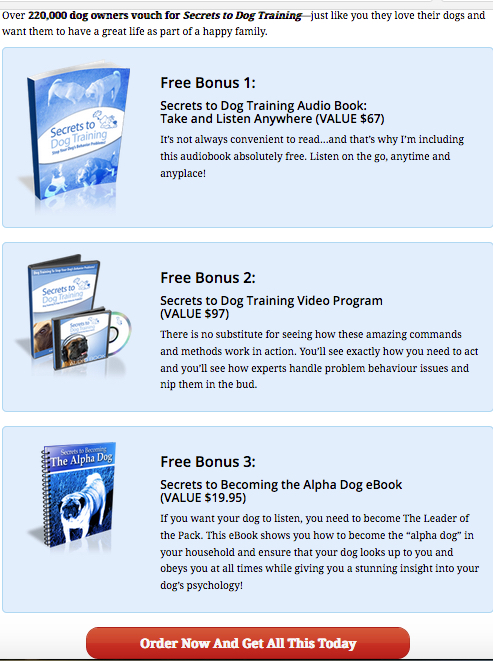The #1 reason for an animal to be placed in a shelter is behavior. . .
It seems to be a common modern fallacy that that the average owner cannot manage an intact male. Until this last generation male dogs in pet homes were not castrated and the average dog owner didn’t find it a burden. Most of the issues related to owning an intact males dog are behavioral and less likely in the typical one dog household.
Castration is not a “cure all” for male dog behavior problems… Training is the answer.
Training and including your dog in your family makes for a happy and healthy dog. Proper socialization often makes the difference between a well-adjusted dog and one that develops behavioral issues. Puppies must be socialized to people, especially men and children, before they are three months old. THIS MUST BE DONE in the safety of his own home since his series of puppy immunization injections is incomplete at this point. The Critical Period of Socialization ends by three months of age! This is the crucial developmental stage during which puppies learn to accept and enjoy the company of other dogs and people. Unfortunately, most people do not “train” and “socialize” their dogs properly, so the dog gets blamed for training issues… Some may be continually subjected to being yelled at simply because the dogs “should know better” or “are stubborn.”
Many of these dogs develop behavioral issues (submissive urination, separation anxiety etc.) and end up being surrendered to a shelter or rescue because of behavior problems, or simply spend their lives relegated to the basement or tied up in the yard for the majority of their lives… I’ve seen this go a lot of times before and what happens is that once the dog starts to pull on leash, jumping up and pulling you around, you stop taking it for a walk ‘cause you’re already past the point of embarrassment. So now you relegate the dog to the backyard. And if the dog is digging up your yard, now you put it in the basement, which is basically training it to eliminate anywhere. Then you get fed up and think well, I can’t keep it. It’s too much trouble!
If owners were made aware and had put forth the initial effort to learn about their dog and to train them many of these dogs could have dramatically different lives. Training is NOT only for dogs that have problems or for dogs that compete in dog shows or sports.
Submissive Urination
Learn the Secrets to Completely Potty Train Any ADULT Dog or Puppy Quickly and Easily in 7 Days or Less…
With submissive urination, this happens among of pack of dogs. The dogs in the pack see what the leader is doing and then they follow suit. The submissive dog lowers itself and starts to urinate. Dogs who exhibit submissive urination are usually showing their insecurity.
Un-socialized and previously abused dogs often exhibit submissive urination. Do not punish the dog for inappropriate urination because it will only make the situation worse for both of you. When dogs exhibit this kind of behavior, they are usually insecure. Many dogs of this nature have previously been abused by someone else. These dogs need to be shown that there are more appropriate ways to express their submissive status, such as shaking hands or licking the owner’s hand.
You can also teach the dog to lift their paw, command them to sit down, along with other commands of obedience. Doing this will get the respect of your dog. It is not an easy task to deal with urination issues; however, you still need to be consistent. When they are making progress, you should always reward them. Again…
Training is the answer
Dr. Karen Becker, a proactive and integrative wellness veterinarian, discusses the four great tips for housebreaking a young dog, and housebreaking a senior dog.
—
Learn the Secrets to Completely Potty Train Any ADULT Dog or Puppy Quickly and Easily in 7 Days or Less…
Separation Anxiety
For those of you who have a dog who barks when left alone, or tries to escape, digs holes, chews things, licks themselves excessively, becomes destructive, , BUT when you walk in the door, they stop all these behaviors magically…then, your dog is experiencing Separation Anxiety.
Believe me your dog wouldn’t say…”Oh, as soon as they leave I just have the desire to whine and bark and destroy the house for 8 hours until they return!” And that’s why no amount of treats, bones or toys will stop this behavioral issue.
According to renowned dog trainer, Doggy Dan, his probably happens when your dog thinks that they are in charge. And they think that they are looking after YOU. That’s right. The way they see it is that YOU are their responsibility…So when you leave the house they immediately panic and stress because they think that they’re in charge and responsible for keeping you safe.
According to renowned dog trainer Dr. Ian Dunbar, during your puppy’s first few weeks at home, frequent confinement with stuffed chew toys is essential for your pup to develop confidence and independence. Smothering your puppy with attention and affection when you are home primes the pup to really miss you when you are gone.
So… not lingering good byes no exuberant greetings. The dog must be ignored until it’s calm and has stopped trying to solicit attention. You must “totally” ignore the dog starting 10 min. before you go and 10 min. after you return. No talking. No touching. No direct eye contact
A Jekyll-and-Hyde environment (lots of attention when you are there, and none when you are gone) quickly creates a Jeckyll and- Hyde puppy which is completely confident when you are there, but falls apart and panics when you are gone. Dogs are more likely to indulge in bad habits, such as house soiling, chewing, digging, and barking when anxious.
Try your best to teach your puppy to enjoy his own company, to develop self-confidence. Once your puppy is confident and relaxed on his own, he may enjoy all of his time with you when you are at home. your now well behaved and confident pup to enjoy as much time with you as he likes, without the fear that he will become anxious in your absence.
So… What’s the solution? Pretty simple, really…
According to Doggy Dan
When you win the game of “Who Is In Charge”, WHO’S THE ALPHA DOG …your dog will no longer feel responsible for looking after you. And you’ll be able to just come and go whenever you like and leave them happy and relaxed at home…With absolutely NO FEAR of what you’re going to come back to, and without ANY guilty feelings!
According to Dr. Ian Dunbar
Confining your pup when you’re home enables you to monitor his behavior during confinement and check in on him at irregular intervals, quietly rewarding him for being quiet. Thus your pup will not necessarily associate his confinement area with your absence, but rather he will learn to look forward to time spent in his playroom with his special toys
- Maintaining your puppy’s confinement schedule when you are at home prepares your puppy to be calm when you are gone.
2. Allowing a young puppy unrestricted access to you when you are at home quickly encourages him to become overly dependent, and over dependence is the most common reason why dogs become anxious when left at home alone.
Let us know which works best for you.
<><><>
If you want to learn more DOG TRAINING SECRETS ON HOW TO BECOME THE ALPHA DOG This is the best course out there… SECRETS to DOG TRAINING Has Been The No.1 Dog Training And Behavior Site For Years…


